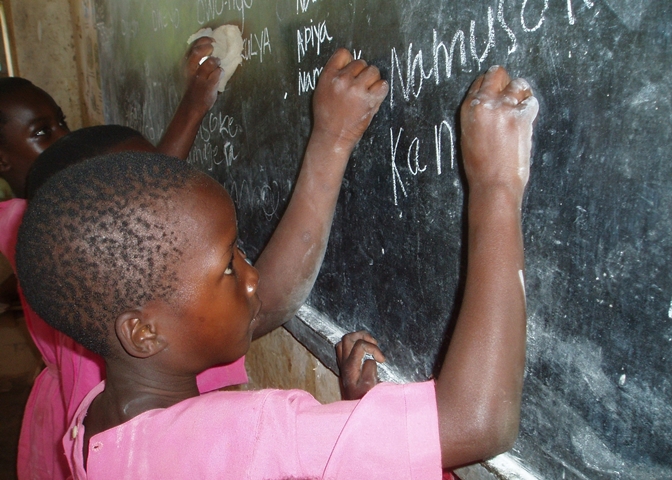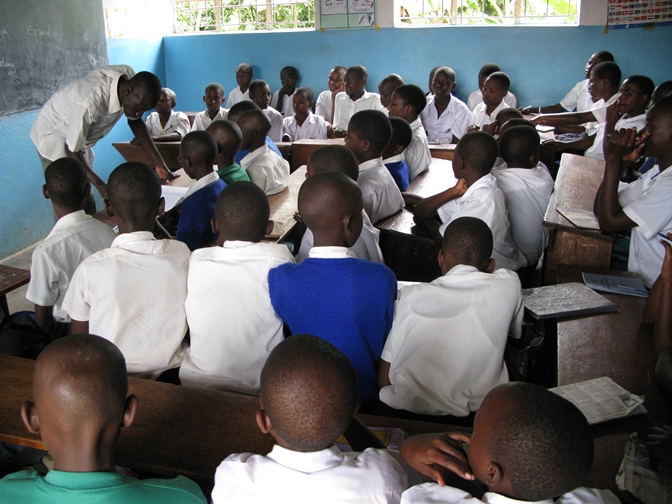Spotlight on: Education
A feature series in » The Link taking each of Irish Aid’s thematic priorities in turn

Girls learning to write in a rural school in Uganda – Photo: A. Mulkeen
Irish Aid recognises that education is a fundamental human right for all people and is the basic building block of every society.
Quality education contributes to human development. It provides people with the critical knowledge, abilities and skills that are needed to question, conceptualise and solve problems that occur both locally and globally, and actively contribute to the sustainable and democratic development of society. Hence, quality education is fundamental to the achievement of all other development goals, including gender equality, health, nutrition and environmental sustainability.
Education has always been a central focus of Irish Aid’s work and its new Policy on International Development: ‘One World, One Future’ reaffirms its importance. Irish Aid spends 8% of its bilateral Official Development Assistance (ODA) on education. In 2012, this amounted to €33.9 million.
Irish Aid works with national governments to build effective and accountable education systems and promotes a focus on improving quality, ensuring access for girls and reaching the most marginalised.
Support is also provided to civil society organizations for their valuable work in fostering community involvement in the running of schools and for providing education services in communities affected by conflict or communities not covered by government services.
Ireland also supports the Global Partnership for Education, which provides education grants to poor countries and places a strong emphasis on improving learning quality and supporting education service delivery in fragile states.
EXAMPLES OF IRISH AID SUPPORT TO EDUCATION
Ireland supports civil society organizations in Zambia to raise awareness on the negative impact that teen pregnancy and early marriage have on girls’ education. In Uganda Irish Aid support helped train teachers on the use of the government’s new curriculum, which focuses strongly on improving literacy and numeracy. Similarly, in Niassa, a North Western province of Mozambique, Irish Aid funds were used to train teachers in new methods of improving literacy.

Overcrowding is still an issue in many classrooms, as it is in this classroom in Uganda. Photo courtesy of A. Mulkeen